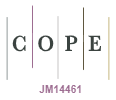What makes us human? analyzing the ideological discourse present in the animation the hunchup of notredame
DOI:
https://doi.org/10.5585/eccos.n71.27567Keywords:
ideology, movie theater, xenophobia, capabilities, humanizationAbstract
Cinema can be a fruitful pedagogical tool, as it enables both aesthetic enjoyment and the ability to establish dialogues with students about content and/or themes. However, we cannot forget that films can also contribute to the reproduction of stereotyped and prejudiced ideologies. It should not be neglected that the film is present in everyday school life, being used with a certain frequency to help or entertain students in understanding certain subjects. From this perspective, we advocate, in this essay, the need for a critical appropriation of films by teachers and students that enables them to identify the ideological aspects underlying the narratives. We aim to analyze the animation The Hunchback of Notre Dame, which is an adaptation of Vitor Hugo's work, discussing some ideological aspects that permeate it, such as: xenophobia, ableism and machismo/objectification of the feminine. In animation, the duality between humanity and animality are intertwined based on the relationship established between ethics and aesthetics, by questioning the analogy between ugly/beautiful with evil/good, it displaces a position that relates ugly (in this case, the deformed) with evil/monstrous and the beautiful with goodness. In this way, animation leads us to question: what makes us human?
Downloads
References
ARAÚJO, S. M. Para filosofar. São Paulo: Scipione, 1995.
AZEVEDO, Fernando. Literatura Infantil e Leitores. Da Teoria às Práticas. 2ª Edição Revista e Ampliada. Lulu Press, Raleigh, N. C. ISBN: 978-1-326-10972-1. 2014.
BRANDÃO, N.A, A questão da Ideologia em Antonio Gramsci. Revista trabalho & Educação – Vol. 16, nº 2: jul / dez – 2007.
COLLINS, Patricia Hill. BILGE, Sirma. Interseccionalidade. 1. ed. - São Paulo: Boitempo, 2020.
FORTUNATO, I, IBERNON F, NETO S. Formação permanente de professores: experiências ibero-americanas. São Paulo: Edições Hipóteses, 2019.
FREIRE, Paulo. Pedagogia da Autonomia: Saberes necessário a prática educativa. Rio de Janeiro, Paz e Terra, 2016.
LIBÂNEO, J. C. Didática. São Paulo: Cortez. 1994.
MARX, Karl. Ideologia Alemã. São Paulo. Editora Martim Fontes, 1998.
SCORSI, R. de Angelo. Cinema na literatura. Pro-Posições, v. 16. n. 2 (47) - maio/ago. 2005.
SILVA, P. W. de O.. Ideologia, cinema e formação docente: O que não te contam sobre os contos de fadas. Crato-CE, 2023. (Dissertação. Mestrado Profissional em Educação) Universidade Regional do Cariri , Crato/Ce.
Downloads
Published
How to Cite
Issue
Section
License
Copyright (c) 2024 Pedro Weslei de Oliveira Silva, Maria Dulcinea da Silva Loureiro

This work is licensed under a Creative Commons Attribution-NonCommercial-ShareAlike 4.0 International License.
- Abstract 142
- pdf (Português (Brasil)) 70






